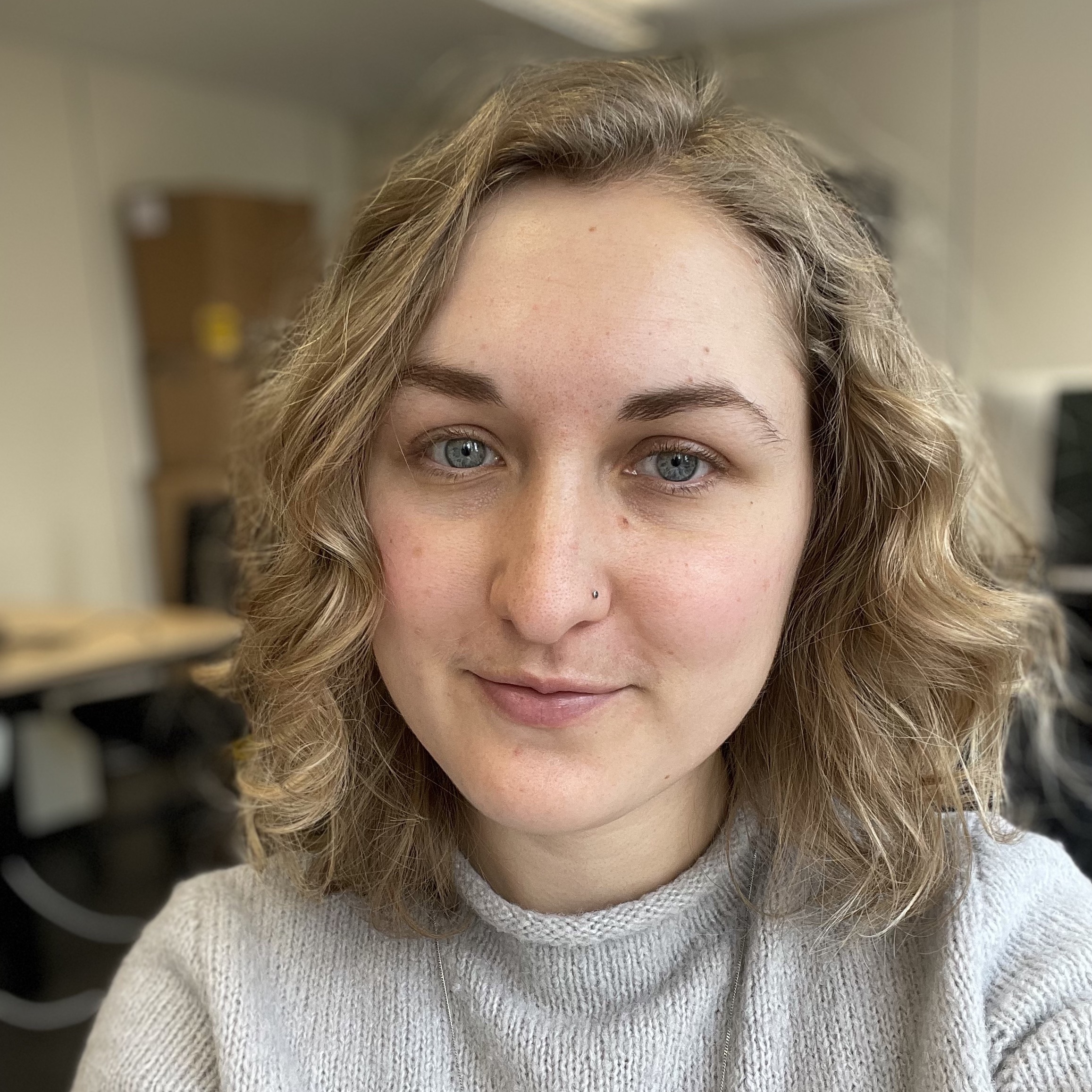Chloe Fisher
Postdoc at the University of Oxford
working on Exoplanet Atmospheres.
Recent Projects
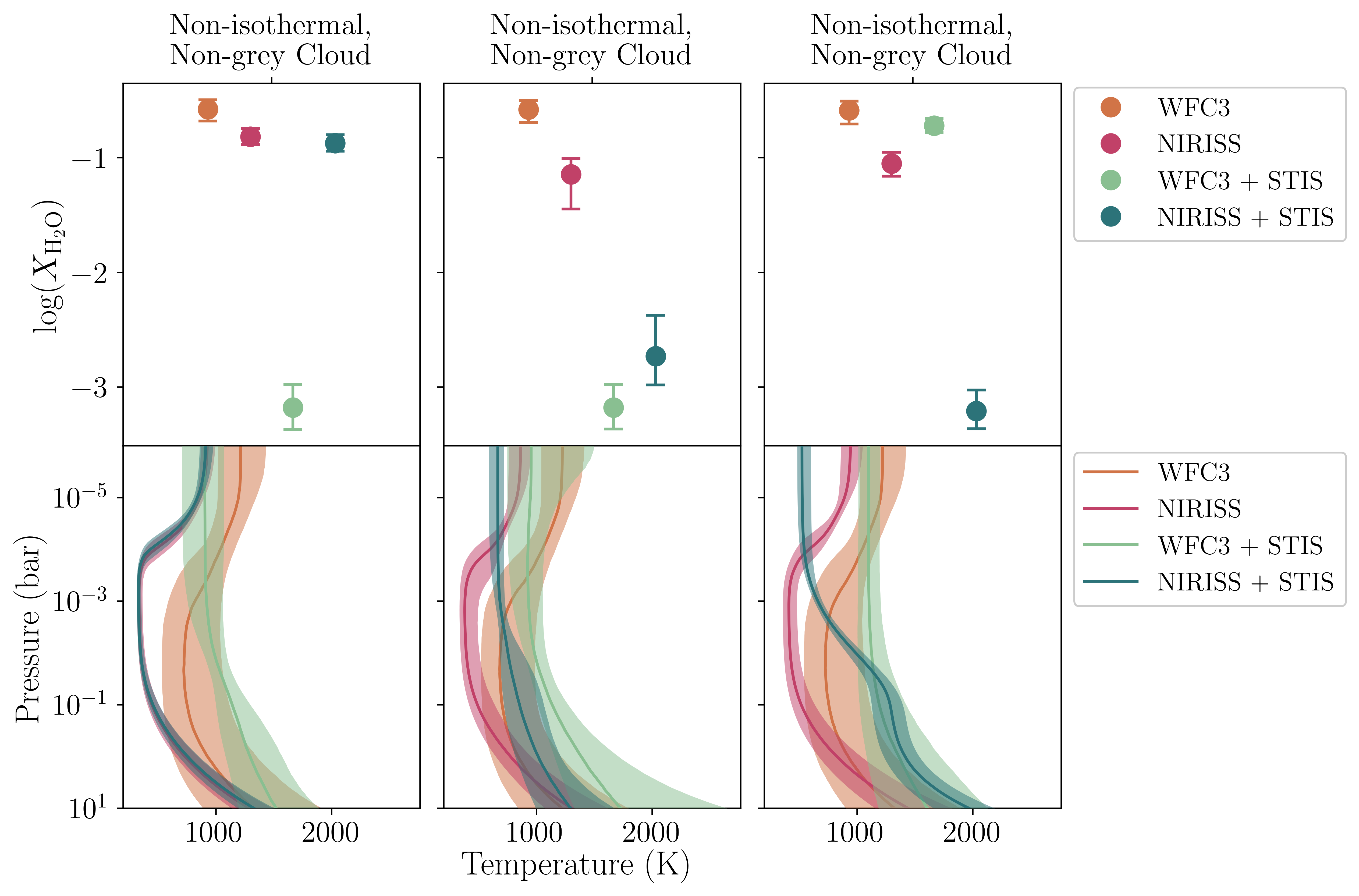
NIRISS and HST Comparison
In this study we attempt to quantify the improvement of JWST over HST in characterising exoplanet atmospheres. We perform an in depth comparison between the two closest instruments on each -- NIRISS and WFC3, using WASP-39 b as a case study. We determine whether the wider wavelength coverage or increased resolution is more important for retrieving the different model parameters. We also consider the benefits and drawbacks of combining data from these instruments with data from STIS. This work was recently featured in a Nature Astronomy Research Highlight here.
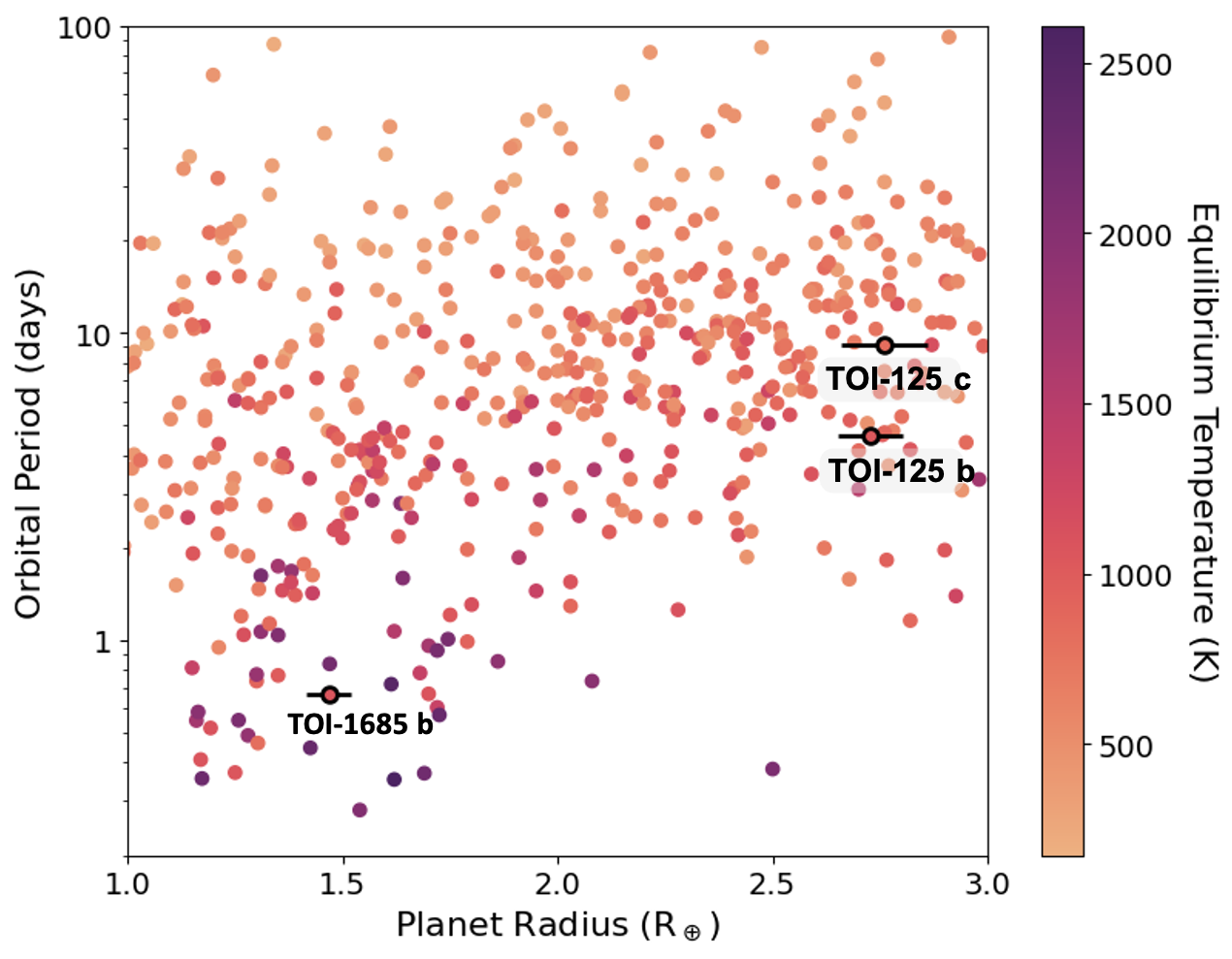
JWST Observations
I am the PI of two accepted JWST cycle 2 GO programs. The first will get 4 transits of the super-Earth TOI-1685 b with NIRSpec G395H (ID 4126). The second will get 1 transit each of two sub-Neptunes in the same system, TOI-125 b and c, with NIRSpec G395H (ID 4195). I am also a co-I on a number of other JWST programs, including the large Hot Rocks Survey (PI: Hannah Diamond-Lower, ID 3730). For info on the planets and dataset leaders, click below to view the program's new website!
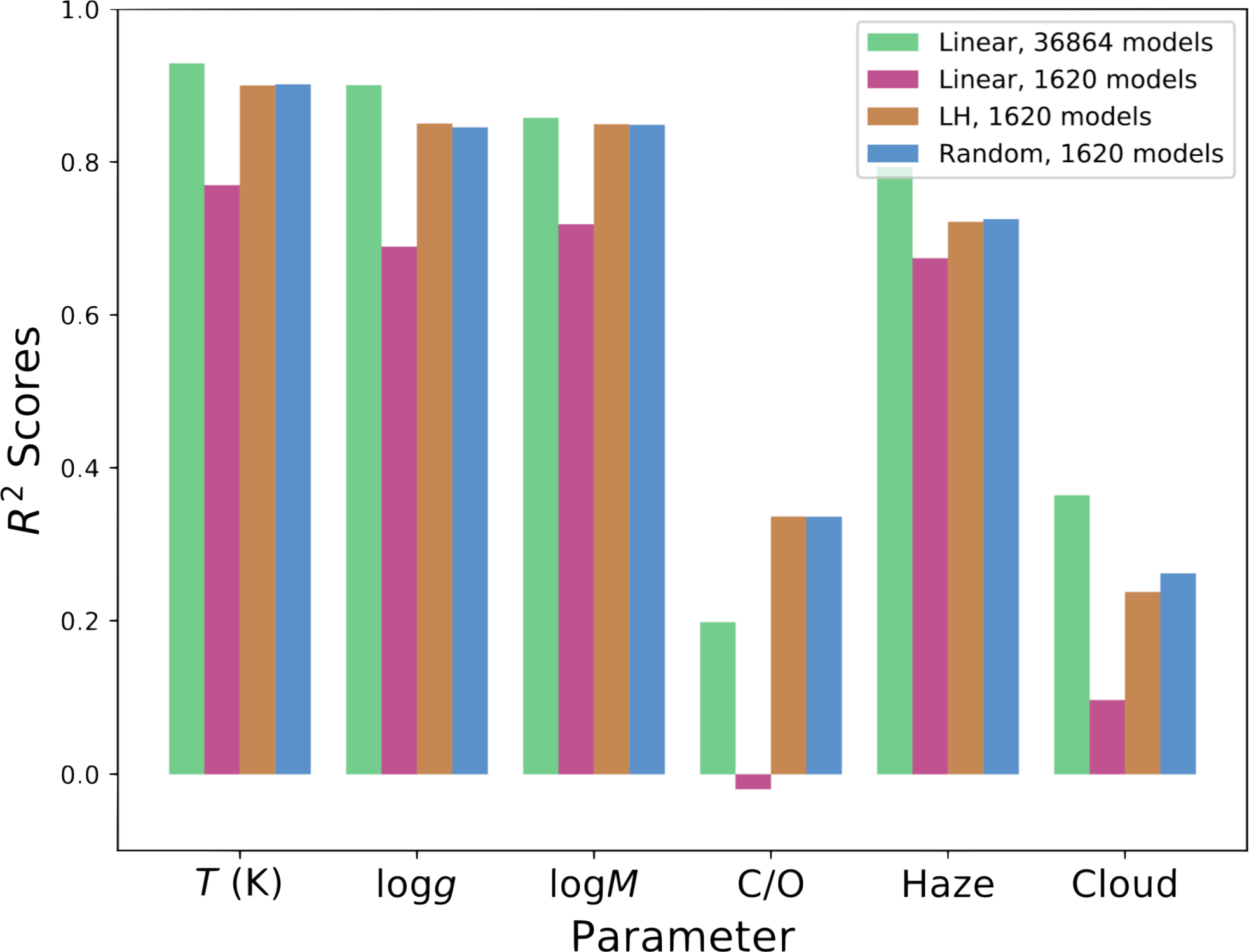
Sampling of Exoplanet Grids
We tested different methods for sampling a training set of exoplanet transmission spectra. We then trained random forests on these training sets, and showed that random and latin-hypercube sampling are more optimal than linear sampling.
Research
I am working on developing atmospheric retrieval methods involving machine learning techniques for extrasolar planets. I also work on different aspects of the theory of transimission spectra, and analysing traditional methods of retrieval.
First Author Papers
Fisher, C., et al. 2024, MNRAS, in press
JWST/NIRISS and HST: Exploring the improved ability to characterise exoplanet atmospheres in the JWST era
Fisher, C., & Heng, K. 2022, ApJ, 934, 31
How Do We Optimally Sample Model Grids of Exoplanet Spectra?
Fisher, C., et al. 2020, AJ, 159, 192
Interpreting High-Resolution Spectroscopy of Exoplanets Using Cross-Correlations and Supervised Machine Learning
Fisher, C., & Heng, K. 2019, ApJ, 881, 25
How much information does the sodium doublet encode?
Retrieval analysis of Non-LTE sodium lines at low and high spectral resolutions
Fisher, C., & Heng, K. 2018, MNRAS, 481, 4698
Retrieval analysis of 38 WFC3 transmission spectra and resolution of the normalization
degeneracy
Other Papers
Oza, A., et al. 2024, ApJL, 973, L53
Redshifted Sodium Transient near Exoplanet Transit
Burt, J., et al. 2024, ApJL, 971, L12
TOI-1685 b Is a Hot Rocky Super-Earth: Updates to the Stellar and Planet Parameters of a Popular JWST Cycle 2 Target
Lueber, A., Novais, A., Fisher, C., & Heng, K. 2024, A&A, 687, A110
Information content of JWST spectra of WASP-39b
Lueber, A., et al. 2023, ApJ, 954, 22
Intercomparison of Brown Dwarf Model Grids and Atmospheric Retrieval Using Machine Learning
Prinoth, B., et al. 2022, Nature Astronomy, 6, 449
Titanium oxide and chemical inhomogeneity in the atmosphere of the exoplanet WASP-189 b
Grimm, S. L., et al. 2021, ApJS, 253, 30
HELIOS-K 2.0 Opacity Calculator and Open-source Opacity Database for Exoplanetary Atmospheres
Guzmán Mesa, A., et al. 2020, AJ, 160, 15
Information content of JWST-NIRSPEC transmission spectra of warm Neptunes
Oreshenko, M., et al. 2020, AJ, 159, 6
Supervised Machine Learning for Intercomparison of Model Grids of Brown Dwarfs:
Application to GJ 570D and the Epsilon Indi B Binary System
Hoeijmakers, H. J., et al. 2019, A&A, 627, A165
A spectral survey of an ultra-hot Jupiter: Detection of metals in the transmission spectrum
of KELT-9b
Seidel, J. V., et al. 2019, A&A, 623, A166
Hot Exoplanet Atmospheres Resolved with Transit Spectroscopy (HEARTS) - II. A broadened sodium
feature on the ultra-hot giant WASP-76b
Márquez-Neila, P., Fisher, C., Sznitman, R., & Heng, K. 2018,
Nature Astronomy, 2, 719
Supervised machine learning for analysing spectra of exoplanetary atmospheres
Codes
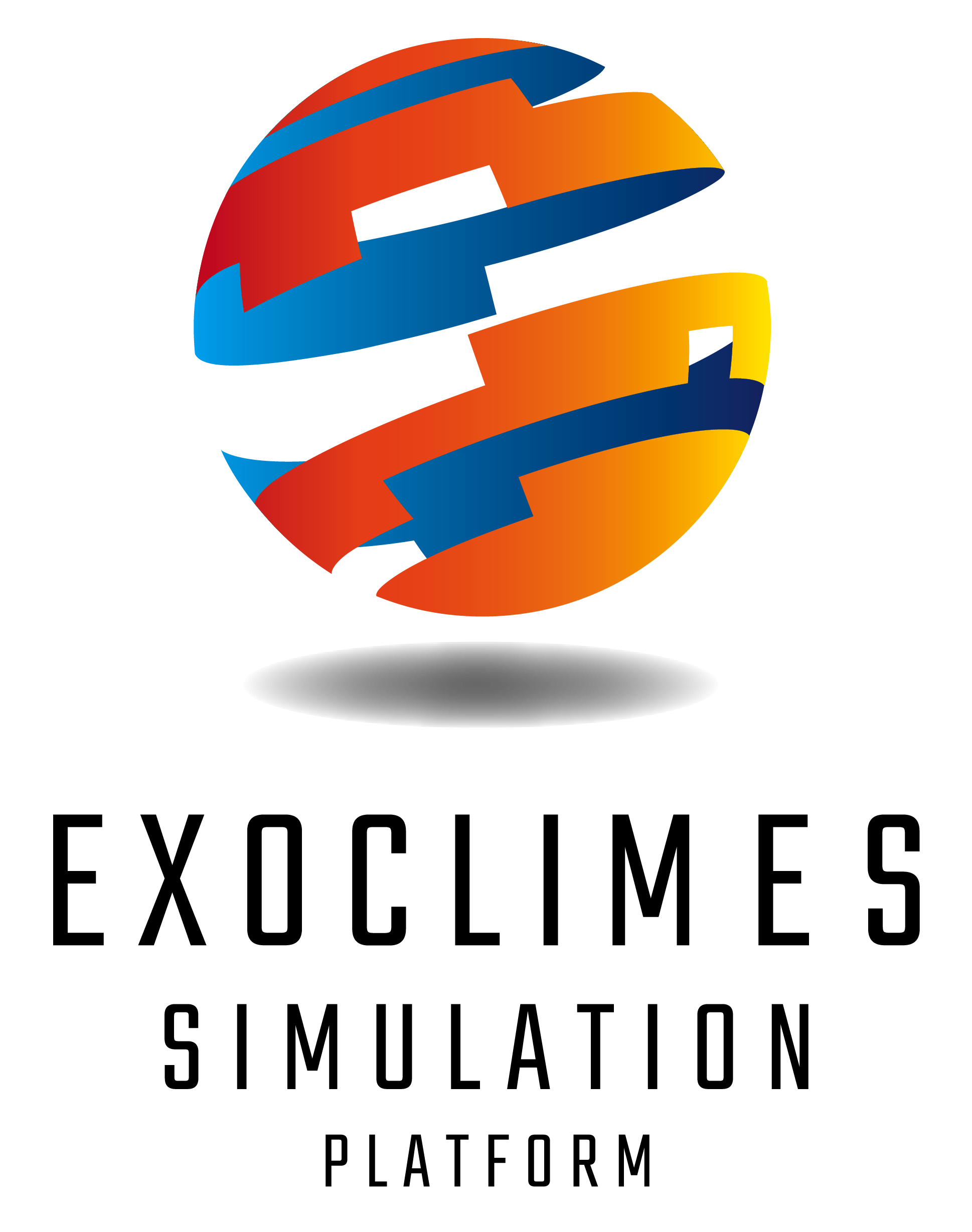
Our random forest retrieval code HELA, along with all the Exoclimes Simulation Platform open-source codes, can be found on our github page.
About Me
I am a Postdoc at the University of Oxford in the UK. I am also a Nicholas Kurti Junior Research Fellow at Brasenose College. I study the atmospheres of extrasolar planets to try to determine their composition and climate. Born in the UK, I did my undergraduate degree in mathematics at the University of Cambridge, followed by a master's in Astrophysics. In 2017 I moved to the University of Bern, Switzerland, to work with Professor Kevin Heng on my PhD entitled "Characterising Exoplanet Atmospheres using Traditional Methods and Machine Learning". In September 2021 I completed my PhD, and in June 2022 I started as a postdoc at the University of Oxford.
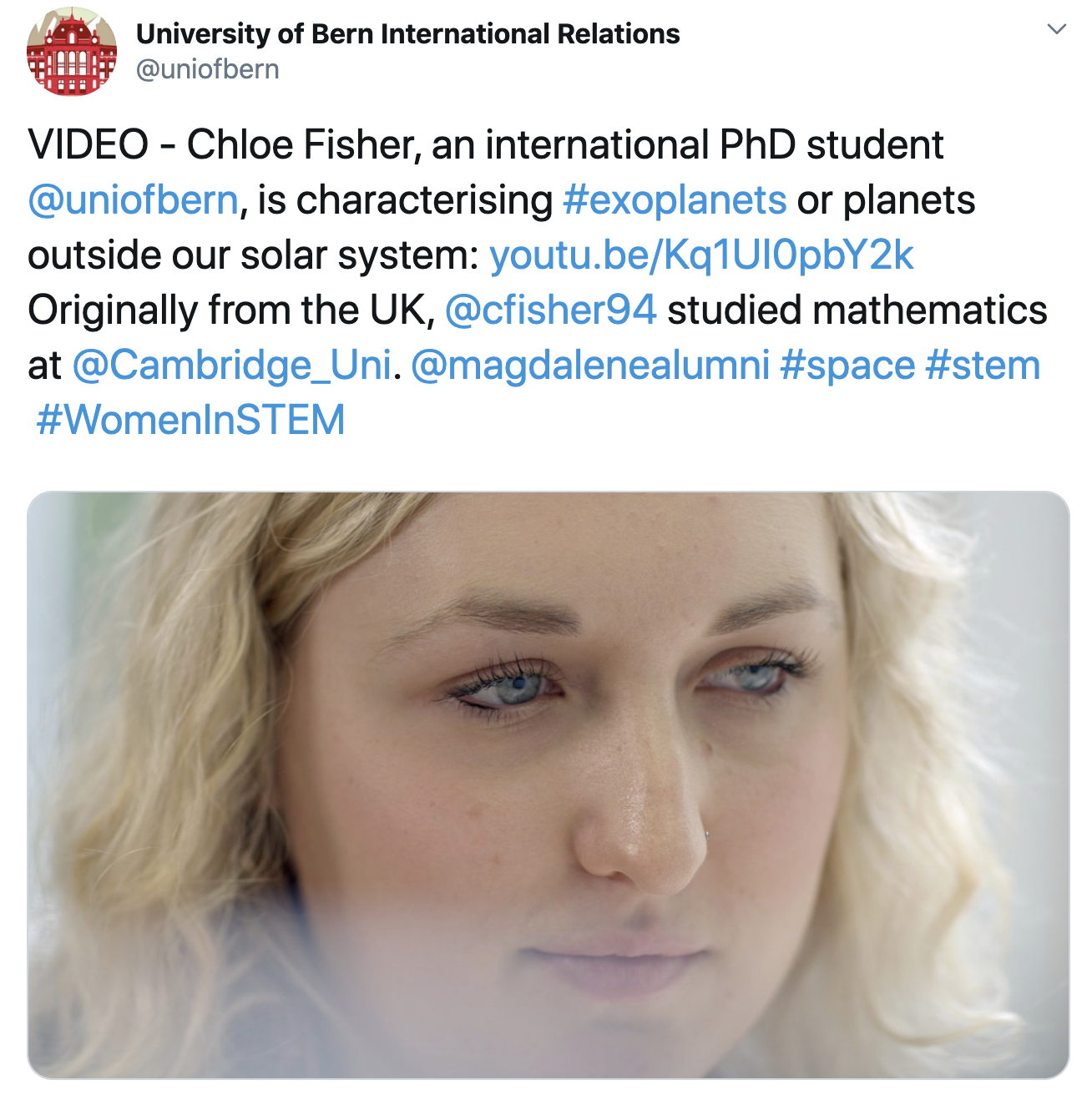
The University of Bern International Relations department made a short video about my research and what life in Bern is like for international students. Click below to watch it.
Contact

University of Oxford
Department of Physics
Denys Wilkinson Building
Oxford
OX1 3RH
